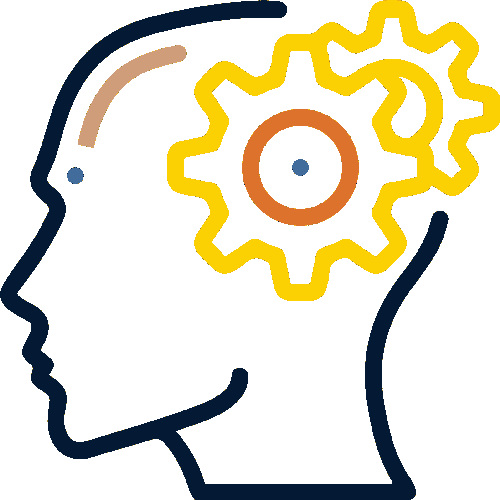During treatment for a mental health or substance abuse disorder, evidence-based therapies are routinely merged with a holistic treatment approach in order to maximize your chances of recovery. Holistic treatment programs are beginning to trend in the world of addiction recovery. Some people may not feel fully comfortable with the traditional treatment methods.
Some mental health disorders also increase your chances of attempting suicide, isolating yourself from others, and experiencing instability. Substance abuse disorders can likewise cause physical, emotional, and financial harm. The long-term effects of substance use can alter the way the brain responds to life. Substance use at an early age can lead to changes in the development of regions of the brain responsible for emotional reasoning, processing, and more. Addiction treatment may offer standard therapies to promote optimal health.

What Does Holistic Mean?
Integrating Holistic Treatments into Other Recovery Methods
Dual Diagnosis Support
21% of U.S. adults experienced mental illness in 2020 (52.9 million people). This represents 1 in 5 adults.5.6% of U.S. adults experienced serious mental illness in 2020 (14.2 million people). This represents 1 in 20 adults. 46.2% of U.S. adults with mental illness received treatment in 2020. 64.5% of U.S. adults with serious mental illness received treatment in 2020. 11% of U.S. adults with mental illness had no insurance coverage in 2020. 11.3% of U.S. adults with serious mental illness had no insurance coverage in 2020.
Addiction and Mental Health
 Addiction and mental health disorders are chronic diseases that impact your emotions, physical health, and overall wellbeing. It causes changes to your brain’s pleasure and reward system, which results in major neurotransmitter imbalances. Addiction can also:
Addiction and mental health disorders are chronic diseases that impact your emotions, physical health, and overall wellbeing. It causes changes to your brain’s pleasure and reward system, which results in major neurotransmitter imbalances. Addiction can also:
- Impair your judgment and logical reasoning
- Lower your inhibitions
- Cause cognitive and neurological impairments
- Worsen underlying comorbid and co-occurring disorders
- Lead to legal problems
- Cause employment issues
Addiction can also cause withdrawal symptoms and intense cravings, making it hard to recover without treatment. Nearly half of all people in substance abuse recovery experience at least one relapse, which occurs when you begin abusing drugs or alcohol again after sustaining a period of abstinence. It is ideal that you complete treatment for at least 90 days in order to increase your chances of fully recovering. It takes your body and brain time to heal from addiction fully.
Mental health disorders require early treatment because many mental health conditions worsen until you receive help. Mild symptoms are easier to control and treat, while severe symptoms may require more intense treatment. Many mental health disorders cause neurotransmitter imbalances, which leads to uncontrolled emotions and difficulty in managing your daily life.
Spiritual Healing
Integrating Holistic Techniques for Substance Abuse Treatment
What Role Do Holistic Activities Play in Recovery from Addiction?

What is a Holistic Treatment Approach?
Holistic medicine has been around for quite some time. Holistic treatment options may offer resources to help address your physical symptoms of addiction recovery. You might be familiar with holistic therapies such as acupuncture. The satisfaction rates of recovering individuals tend to increase with a holistic approach.
What is a Holistic Addiction Treatment Program?
Relaxation techniques can help guide a person through their emotional issues to improve their daily life. The emotional well-being of a person in addiction treatment can mark a lasting recovery if handled with care. Nutritional therapy can serve as a gateway to improving well-being if a person is recovering from malnourishment or exhaustion from the medical detox.
Is There A Holistic Treatment Program Covered by Insurance?
What are Evidence-Based Approaches?
Mental health counseling such as cognitive and dialectic behavioral therapy are common during mental health and substance abuse treatment because they help you identify and change negative thoughts, feelings and behaviors. Family therapy is another resource for addiction treatment.
Emotional support is necessary to help the person recognize their journey will be made easier with a support system. Drug abuse tends to cause people to isolate or withdraw from loved ones. Drug addiction could be a result of self-medicating or other underlying issues. A family therapy program Crystal Lake Il offers ensures that you and your loved ones are on the same page during your recovery.
Medication therapy management and medication-assisted therapy are also two evidence-based approaches that are highly effective in recovery from mental health and substance abuse disorders. Individual therapy, which can include trauma-focused counseling, provides you with a safe, supportive environment to share and express complex or troubling emotions. Group therapy improves your ability to communicate and identify with others.
Peer-led support groups, which can include 12-step groups, like AA (Alcoholics Anonymous) and NA (Narcotics Anonymous), offer strong recovery-focused networks to help you remain clean and sober following treatment. The addiction recovery process requires attention from different perspectives. Conventional and alternative therapies can be viewed as a reinforced method of integrative health.
Finding Help Today





